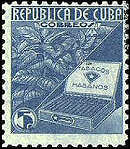 A federal district court judge in Washington, D.C., on Monday rejected challenges by a professor and a student at Johns Hopkins University in Baltimore to changes made in 2004 by the Office of Foreign Assets Control (“OFAC”) to its regulations relating to academic study in Cuba. The regulations at issue required eligible academic programs to be at least 10 weeks and be restricted to students enrolled at the academic institution conducting the course in Cuba.
A federal district court judge in Washington, D.C., on Monday rejected challenges by a professor and a student at Johns Hopkins University in Baltimore to changes made in 2004 by the Office of Foreign Assets Control (“OFAC”) to its regulations relating to academic study in Cuba. The regulations at issue required eligible academic programs to be at least 10 weeks and be restricted to students enrolled at the academic institution conducting the course in Cuba.
The student and professor challenged the regulations under the First Amendment and the Fifth Amendment. The court rejected the First Amendment claim by noting that OFAC’s rules were content neutral:
The regulations place no restrictions on what universities and their professors may teach their students about Cuba–they merely restrict them in limited circumstances from teaching students in Cuba. Thus, there can be no question that the 2004 CARC amendments are content neutral.
Because the regulations were content neutral, their incidental burden on First Amendment rights could be justified if they further an “important or substantial governmental interest.” The Court ruled that these regulations did meet that standard, noting that the “interest in denying hard currency to embargoed countries such as Cuba is ‘important’ and ‘substantial.’ ”
The challenge by the Johns Hopkins student and the professor under the Fifth Amendment was premised on a “right to travel” which the Supreme Court has ruled is created by the Fifth Amendment. The District Court, however, noted that the Supreme Court has said that the right to international travel under the Fifth Amendment could be circumscribed if the government has a “rational, or at most an important, reason for restricting such travel.” The government’s interest in denying currency to the Castro regime was, according to the court, a sufficient justification under this standard

 Posted by
Posted by  Category:
Category: 

 Iowa-based fish processor
Iowa-based fish processor  The House today
The House today  The Office of Foreign Assets Control (“OFAC”) published today in the Federal Register a
The Office of Foreign Assets Control (“OFAC”) published today in the Federal Register a  The Office of Foreign Asset Controls (“OFAC”) today issued
The Office of Foreign Asset Controls (“OFAC”) today issued 

